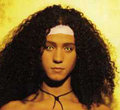Laudean: Difference between revisions
(→Religion: Deleted broken link. Looked through the history but couldn't figure out what this was supposed to reference.) |
m (added notes) |
||
| Line 161: | Line 161: | ||
Now with the Romulans gone and preoccupied with internal problems the Federation has established a new Embassy on the planet. The building they were given to use, use to belong to the Romulans and had been their Embassy prior to their invading and occupying the planet. | Now with the Romulans gone and preoccupied with internal problems the Federation has established a new Embassy on the planet. The building they were given to use, use to belong to the Romulans and had been their Embassy prior to their invading and occupying the planet. | ||
* [[Embassy of Duronis II]] | * [[Embassy of Duronis II]] | ||
==Notes== | |||
This is an original Starbase 118 species created by the crew of the Duronis II Embassy. | |||
{{Template:SDC}} | {{Template:SDC}} | ||
Revision as of 14:17, 25 September 2012
| Intelligent Lifeform Index |
|---|
| Laudean | |
|---|---|

| |
| Four Letter Code | LAUD |
| Federation Status | Neutral |
| Planet of Origin | Til'ahn |
| Encountered | Non-canon |
| T/E Rating | T0/E0 |
| Current Tech Level | K+ |
| List of Named Laudeans | |

| |
Full ILI Gallery • Permitted Species Gallery | |

|
| Laudeans |
|
|
Name
- Proper Name: Laudean
- Pronunciation: Lau’De’an
Home System
- Quadrant: Beta
- Location: Ama-Prayal Sector (coordinates B23-0004-1295)
- Proper Name: Duronis
- Pronunciation: Du’Ron’is
- Star: This system has a binary star system. The first star Luxis is a class G (Yellow Color). The second star Sebris is a class K (Orange color).
- Distance from Star: it's orbit is approximately 371 million km
- Companions: It is the 2nd planet of 6 in the system.
Home World
- Proper Name: Til'ahn is also known as Luxis II or Duronis II
- Pronunciation: TiL'aHn, Lu'Xis II or Du’Ron’is II
- Diameter: 13,881 km (8,625 miles)
- Gravity: 1.01 standard gravity with a density of 5.1
- Axial Tilt: 17.1%, with normal terran seasonal changes
- Orbital Period: 370 days
- Rotational Period: 25 hours
- Classification: M
- Surface Water: 65%
- Atmosphere: 0.98% is a standard pressure with 73% nitrogen, 26% oxygen, 1% trace chemicals
- Climate: It has a wide range of physical features and climates. In many ways very similar to that of Earth.
- Population: Just over 3.5 billion
History
Due to the unique nature of their dual star system and the unusual properties that seem to function like a sub-space sandbar making warp travel extremely difficult their existence was unknown until recently.
This had a positive affect on their development. With no outside influences they were able to develop at a better than average rate. The only interference with this progression was as a result of the competitiveness of the various different regions. Each of these regions developed independently of each other and use to have their own customs, manners and political systems. Over time they slowly grew together into a single united world but it was not an easy or peaceful progression. Periods of conflict and social upheaval were wide spread and frequent at times.
For more data regarding historical records examine their Historical Data.
Government
The current government of Duronis II, at the time when the Federation opened their Embassy on the planet, is in its infantile stages after a massive coup and is lead by non-aristocratic civilian leaders who have adopted a democratic election system.
For more data regarding this system, their current government and the political history of their world see file # Political data files.
Description
While this species does resemble Terrans in appearance they seem to be slightly shorter than that species and they tend to have slightly sharper cheek bone structure and sizable foreheads as well. Some Laudeans have pale skin with a hint of a colored cheek complexion, while others have an outright golden-bronze skin. Other Federation citizens have found the Laudeans to be somewhat "gothic." This comes from the their very religious background with churches, cathedrals, etc.
1) Laudeans have yellow eye color (the shades of which are variable according to the individual). It is believed that this is a natural evolution due to living in a Binary star system. The Laudeans actual have dual eye lids (two eye lids rather than one) - the usual skin eye lid and then a second transparent layer that can be moved separately. This second eye lid and yellow eye color ensure protection from the sun's rays when Til'ahn's second sun comes into the season during the summer - acting like a pair of manufactured sunglasses would for Terrans.
2) The second distinguishable physical feature is a rim of exotic color that runs round the top of their forehead and colors the base of their hairline. Likewise, the entirety of a Laudean's ear (although neither pointy nor any larger than a Terran's) is colored in the same exotic shades. These colors vary from Laudean to Laudean and can be one of the following colors on males and females: • Exotic Green • Exotic Purple • Earthy Grey • Watery Blue
Red, Yellow, Black and White are never seen as shades of Laudean "hairline" and "ears" on male or females. Laudean lomales are easily distinguishable because the only color for their "hairline" and "ears" is white. Unlike other planets, "hairline" and "ear" color is not thought to be based on geographical origin but rather social class. This evolutionary theory is supported by the fact that a royal noble would marry with a royal noble (regardless of kingdoms of origin) and a worker with a worker, etc. Of course this was a long time ago in Duronis' history, and is now redundant as Laudeans freely intermix. The presence of purple hairlines may suggest Laudeans with red coloring may at one time have existed and that the purple hair lines descended from their having children with blue hairline Laudeans - but this is unclear.
3) Color Designation •Laudean colors are set for life, but can change from light to very dark shades of the designated hue. For instance light blue to very dark blue or light green to very dark green, but not green to blue. •For Fieldings, the intensity of their color is a determining factor on the strength of power. The darker the color the more powerful the Fielding.
The Laudeans have been described as very "nature-ish" yet also "reserved." People known for being connected to their environment, they are strictly not "nymph-ish" but rather "quiet" and more "serene" in their cultural bias. Yet despite looking "reserved," Laudeans are far from being passive and are very culturally and technologically advanced.
The 3 Genders
Clothing
Laudeans tend to wear long robes with large hoods over collared tops. The thickness and type of the material of the robe depend on the Province. In warmer climates Laudeans may be seen in just their high collared tops without a robe, and important Laudeans will wear a jacket-like item around their high collars. On occasions when Federation citizens visiting Duronis II wish to go out in public without drawing attention, they can often get away with putting on a Laudean robe and wearing the hood up.
Physiology
In many ways they are very similar to most humanoid species, other than the 3 different genders. They have a complex biology dependent on enzymes, chemicals and hormones just like almost every other humanoid known. How they differ is the unique set of organs and their particular set of neural processors and chemicals that gives them unusual powers of sensory perception, especially for energy fields.
Biology
Similar to the Vissians encountered by the Starfleet vessel Enterprise (NX-01) in 2152, the Laudeans are a three gender species. Like most species' males, Laudean males tend to be somewhat taller, larger boned and more muscular, with deeper voices and facial hair. Laudean females are usually shorter, with a lighter frame, more agile and dexterous, and supply the womb for procreation.
The unique aspect to Laudean physiology is the lomale, the Laudean's third gender. Lomales are quite rare, representing only 3% of the Laudean population. Their heights and weights generally split the differences between male and female averages. They are often slightly more muscular than females, but of a lighter frame than males. Their facial features are an odd combination of the male and female, though like females they do not grow facial hair. A lomale's genitalia are more similar to a male's, however, having a penis-like appendage, but lacking testicles or a scrotum.
Though the Laudean females supply the unfertilized egg and womb used in procreation, and males provide the sperm, these elements are not sufficient to successfully generate Laudean offspring. The female's unfertilized egg lacks specific gene sequences necessary to produce offspring, and so is inert. The female body lacks the specific hormone needed to generate the gene sequence. The lomale's body carries this hormone, and thus copulation between a female and a lomale is necessary during a time period before the female's body produces an egg.
Once the egg is produced, its outer layer is virtually impenetrable to a male's sperm. Once more, the lomale is needed during copulation to provide an enzyme which helps break down the egg's outer shell to a state where penetration by sperm is possible. Due to the relationship between the lomale's hormones and enzymes, the same lomale must be involved in both aspects of the procreation process.
For more on Laudean genetics, read the following article: Laudean Genetics
Recent studies hint that the Fielding ability in Laudeans is also closely linked to lomale physiology. This is theorized by interspecies procreation between Laudean males and non-Laudean females. No lomale was required nor involved in the process, and the resulting offspring appear to have absolutely no Fielding ability whatsoever.
Laudean Birthing Ritual
- The full-term of a Laudean pregnancy is five months.
- Care during pregnancy is imperative. The woman should drink at least two 4-oz cups of Minevra tea daily to control violent heaving and headaches. After the first month of the five-month term, she will need a Fielding to help her throughout the rest of the pregnancy because of the fetuses accelerated growth. Generally, this Fielding uses his/her Fielding powers to stimulate the woman's birthing muscular structure. This is done by the laying on of hands, and if not done at least every two weeks, complications from the birth put the mother at grave risk.
- Giving Birth is either done at the home, in a hospital, or at the home of a Mid-Wife.
- No medication is used. Instead the oil taken from a root called Derma is used.
- In all settings a Mid-Wife is present.
- The Mid-Wife is specially trained to use her Fielding power to sense the unborn child's life energy.
The Mid-Wife is in charge of the ritual and normally only her the mother and the father are present, and sometimes a Mid-Wife Apprentice will observe. The mid-wife lights special sweet smelling oil incense that releases endorphins into the air, putting all in the room at ease. Next, the mother is propped up with pillows under her legs and back. Then the Derma is poured on the mother, which numbs the area, allowing the infant to exit smoothly. The Mid-Wife now begins to palpate around the womans middle to insure the baby is in the proper position. While doing this, she chants a poem in the Ancient Laudean language. The poem is lyrical and sounds like a lullaby; in fact the poem is about the first birth, according to Laudean creation myths. She continues to repeat the chant until the baby has emerged. The umbilical cord is then cut using a conventional laser scalpel. The Mid-Wife then blesses the baby by placing the symbol for welcome on the infant's forehead, bringing the ritual to a close.
Psychology
As with most humanoid species they have a complex psychology that does at times require special treatment. Most of these mental illness's are fairly simple to treat. Other than this they tend to be fairly stable mentally. The main exceptions to this are a disease that affects the elderly and another that targets individuals with high levels of fielding abilities.
In it's early stages this aliment has been called Fielding Fever. It is a fairly common ailment and usually easy to treat. At this stage the subject has the sweats, headaches, fever and in some cases suffer from confusion. In the event that treatment fails it can become much more severe and result in the individual becoming paranoid and in some cases violent and self destructive. During the later stages their abilities are dramatically enhanced.
Religion
They have a unique belief system that combines their unusual ability to sense energy with their deep regard and spiritual connection to the world around them.
Mythology
While they do not technically have a true set of myths, they do have a few ancient texts that are still studied and read that detail the trials and tribulations of the earliest civilizations on their world. Many of the more fanciful excerpts are considered to be pure fantasy as a result of clerical and translation errors. Either that or some form of exaggeration intended to instill fear or confusion on the reader.
Society
Prior to the industrial advancements they had 2 class’s of people. The nobles and the workers with a single hereditary ruler over them all. After the introduction of industrial technology 2 new class’s of people emerged. Merchants and specialists. With time some of these individuals were able to amass sizable amounts of funds and property. Now with a democratic government they have a wide range of social class’s. However the aristocrats still remain at the top of the social ladder.
Culture
They have a vast and prolific tradition of music, art and athletic activities, due to the diverse background caused by the development of completely separate political, cultural and economic regions. However over time many of these different styles and types of activities have now been universally adopted.
Laudean Sports and Games
- Futbash - is a game similar to baseball and soccer combined. It is played amongst trees and a field where each tree is similar to a goal and the basherbat is carried and used to move the ball like field hockey. The challenging point of the game is timing strategy. It is mostly played by advanced Fielders using several energy balls at once in rotating team exchanges. The team to have synced the energy balls into their opponents goal is the winner. The energy balls are moved by the bashers kicking the ball at the bashers with the basherbats and in turn they hit them together where they are combined into a larger energy ball.
- Blante
- M'kilet
- Hooy'di (Children's game)
Customs
Each region, province and zone has their own set of individual customs. The only truly universal customs that apply to the entire population are those regarding greetings between different individuals.
Traditional Laudean Greetings and "Handshakes"
One of their oldest proverbs is A man kisses, a woman is kissed; a lomale is ever changing.
- If both parties are male they hold their hands outward with the palms up (similar to the traditional Vulcan gesture). They then touch the palms together.
- If one Laudean is female and the other male the routine is the same, only after they touch palms the male Laudean kisses the woman on the cheek.
- If both parties are female they touch palms (as above) and then both kiss one another on the cheek after touching palms.
- After touching palms with the lomale, if the greeter is male he kisses the lomale on the cheek. If the greeter is female she accepts a kiss on the cheek from the lomale but does not kiss back. Lomales do not kiss each other.
Technology
Despite only having (relatively) recently achieved warp flight, the Laudeans are a very technologically advance people and by no means backward. The natural evolution of the Duronis system and its sandbar hampers warp travel (even for Starfleet vessels) and thus the Laudeans were at an evolutionary hindrance whereby their technology advanced considerably without them being able to develop warp travel as quick as other races.
Incidentally, the difficulties of space travel in the Duronis system is why the Laudeans went relatively unknown to neighboring political entities, such as the Romulans, Zalkonians and the Federation. Once these powers noticed the Laudeans traveling at warp then their interest would be peaked and discovery of the Laudean Fielding ability would be of great interest to all parties.
Economy
They were and still are fairly self sufficient. Following the occupation of their world by the Romulans they have started to rebuild the damaged infrastructure and are actively seeking trade relations with other species.
Laudean Currency
The name used for their currency is Blits.
- 1 red Blit = 5 Federation Credits
- 1 blue Blit = 50 Federation Credits
- 1 green Blit = 100 Federation Credits
Military
Following the occupation of their homeworld by the Romulans most of their military equipment was destroyed and few soldiers survived to see their withdrawal following the destruction of the Romulans star Hobus.
What little they had available to them after this withdrawal was mostly ancient and had long since been mothballed as useless. They were able to salvage 2 frigate class space worth war ships by cannibalizing as much as they could from the wreckage of the rest of their small fleet. Even with that it was a struggle to keep them functional.
Federation Intelligence Files
Once the Laudeans had managed to make contact with other species they welcomed the opportunity to advance both trade and diplomatic connections. The Federation established an Embassy there for a few years but due to political needs and other events the Embassy was closed. Following the destruction of the Hobus star the Romulans left the planet. They had established a strong occupational force that resulted in the destruction of many facilities. One of these was the building that had been used by the Federation as their Embassy.
Now with the Romulans gone and preoccupied with internal problems the Federation has established a new Embassy on the planet. The building they were given to use, use to belong to the Romulans and had been their Embassy prior to their invading and occupying the planet.
Notes
This is an original Starbase 118 species created by the crew of the Duronis II Embassy.
| SPECIES PROFILE UPDATED This profile was revised by the Species Development Committee. |
REV 238909.25 | |||
| Please add any new information discovered during the course of a mission or shore leave. | ||||
| SB118-SDC | ||||




